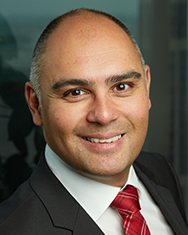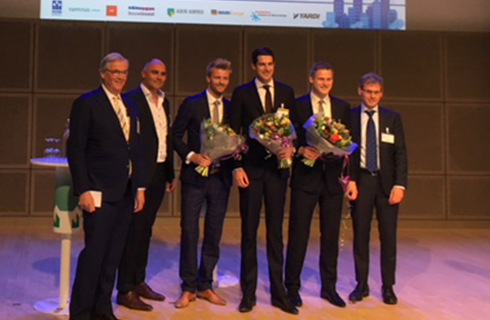|
 |
 |
In This IssueYardi Passes Belgium BDO Audit »
New Clients Node Selects Yardi for Asset and Property Management » Macland Surveyors Adopts Yardi Genesis2 for Company Growth » Montagu Evans Selects Yardi Voyager 7S for Property Management » Fine Grain Property Ireland Ltd Selects Yardi Voyager 7S for Property Management »
Product & Technology Floating Solar Panels Powering Real Estate »
Industry Trends The Distribution Revolution – How Tech is Transforming the Property Logistics Market » Driving Professionalism in the Residential Rental Sector – Michael Green, UKAA » EventsRegister Now for YASC Europe » Yardi Build-to-Rent Forum: Bristol » The Winner of the Yardi Vastgoedmarkt Young Talent Award is... » Inspiring Realty Goers at the Yardi Technology Lunch » Looking Ahead to RESI Conference »
ContactUnited Kingdom
|
Industry TrendsTechnology Adoption in Real Estate Gathers Some Serious Pace
This year, Gerritsen attended the Mipim real estate trade fair in the southern French city of Cannes for the twelfth time. ‘Two years ago, we were still seen as an outsider. This year, technology is suddenly enjoying a great deal of interest. I was in awe of what I saw: real estate professionals that not only talk about technology, but also claim that they have been saying for years that the industry needs to catch up.’ According to Gerritsen, this has everything to do with the power of the large investors. ‘If you want to be attractive to the global investors, you have to go along with their systems for compliance and governance. For parties such as Blackstone, Brookfield or BlackRock, there is no real difference between a square meter in France or the Netherlands. These parties invest a few billion euros across the market and demand that management be carried out in an effective and transparent manner. As a result, the real estate sector is suddenly in the final stage of a technological transition.’ The Tesla Effect According to Gerritsen, real estate is no longer seen as bricks and mortar, but increasingly as data, data processing and data analysis. As a result, a direct link with technology has developed. ‘A story such as that of Tesla, which gives electric cars a software update that gives them new functionality, helps with that. Technology is becoming increasingly complex, but people seem to be more willing to embrace the new possibilities. Technology was first used to do things more efficiently, as a result of which you required fewer people. Now, technology enables to do new things. That makes it less tangible, but people are more interested.’ ‘Medium-sized players must go along with that, as do the larger service providers in the area of property and facility management. Real estate was always local knowledge in the heads of local experts. The availability of large quantities of data makes a portion of this unnecessary. Computers analyse data, recognise connections and as a result see what the various options are. They do that better than those local experts once did.’ From the start in 2008, Yardi Systems has been the sponsor of the Yardi / Vastgoedmarkt Young Talent Award, the first round of debate for which was held on 20 April 2017. Last year, he was struck by the fact that it was the contention of the young talents that human contact is everything in the real estate sector, while it is precisely this younger generation that makes a large portion of its purchases of products and services online without this human factor. ‘During my studies, I examined why people visit a bank branch, even though there is an ATM on the wall just outside. Everyone said: for a chat. These days, you have to search far and wide for a bank branch that you can visit without an appointment.’
Human contact
‘The world is undergoing tremendous changes. In its report “The Future of Jobs”, the World Economic Forum predicts that approximately 7.1 million so-called white collar jobs will disappear by 2020. A maximum of 2 million jobs will be re-created in technological positions.’
Matrix
Information about real estate is traditionally compiled from various systems by large data suppliers such as the British CoStar of Real Capital Analytics (RCA). Yardi is now challenging these suppliers with the introduction of Matrix in the United States. As part of this, a large group of Yardi data analysts have combined large amounts of publicly accessible market information with aggregated, building-specific data.
‘That makes the real estate sector transparent. If you invest a billion euros in real estate, you want to take all available data into account. We have now built up a large organisation to collect all of this data for a number of major real estate markets in the US.’
Smart meters
Gerritsen sees other major shifts in the areas of purchasing and energy management. Over the past three years, Yardi Systems has acquired several technology companies that, for example, focus on the processing of energy bills based on smart meters. Customers profit because they have a better understanding of energy costs and potential savings.
In Scandinavia, the software company is working together with a customer to fully digitise the handling of invoices by property managers. ‘There’s a big difference between having 5,000 invoices scanned or processing them fully electronically. The Dutch system for Electronic Data Interchange (EDI), was far ahead of its time. The exchange of invoice data is now no longer that exciting, it can now be done from smartphone to smartphone, without even a shred of paper being involved. The only areas where things then tend to go wrong are a consequence of human interaction.’
Fibre optic
During MIPIM, Gerritsen took part in a panel discussion about technology. The two other panel members were a data scientist and a European fibre optic company. At first glance, it appeared to be a miss-match of parties. ‘Eventually it proved to be very logical: fast exchange of data by means of hardware. What has stuck with me the most is those 70 people that listened with interest. Technology is increasingly becoming the heart of the business.’
|
||
 |
|
| Asia | Australia | Europe | Middle East | North America |  |
|

